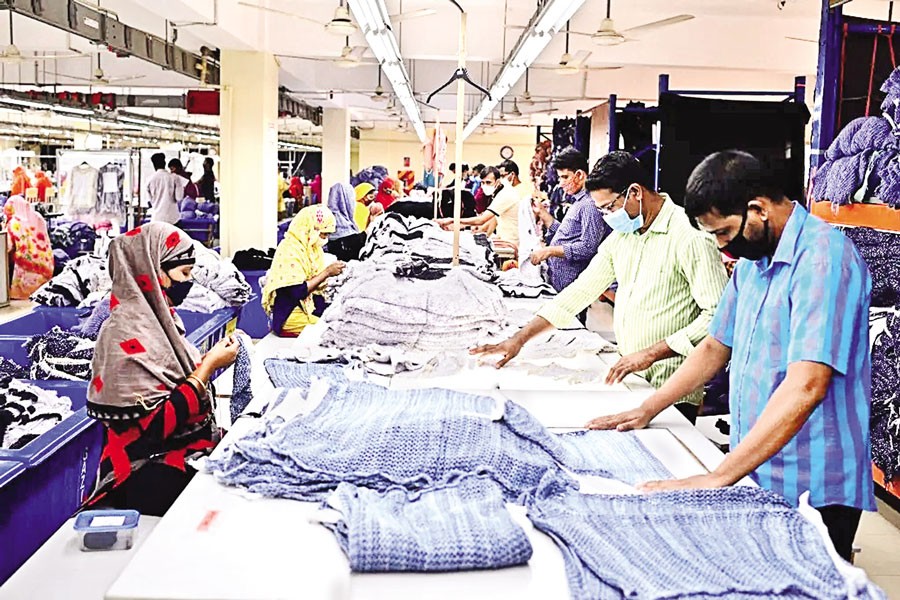RMG sector cuts dependence on buying houses with better products and direct brand connections: Study

Published :
Updated :

The dependency of the country's readymade garment (RMG) sector on buying houses has marked a significant decrease over the last decade mainly due to its enhanced capacity of product development, improved marketing strategy and direct communication with big brands and buyers.
A recent study conducted by Bangladesh Institute of Development Studies (BIDS) reveals that the share of exports thorough buying houses dropped to 38 per cent in 2023 which was 51 per cent in 2014.
On the other hand, direct exports from surveyed garment factories to buyers rose to 52 per cent in 2023 compared to 38 per cent in 2014, according to the study.
BIDS Research Director Kazi Iqbal shared the findings of the study titled 'Technology Upgradation of the RMG Industries in Bangladesh' on Monday during the four-day BIDS annual conference held in the city.
The study was conducted on eight types of products -- knit-lingerie, denim trouser, sweater, T-shirt, jacket, woven trouser, woven shirt and home textile, 36 processes and 136 sub-processes from 43 firms.
The total export value of the 43 units was US $645 million in 2014 which in 2023 stood at $1.03 billion. The number of buyers of these surveyed units has also increased, with each firm shipping goods to 17 buyers on average last year, compared to 11 in 2014, the study shows.
The study highlighted significant capacity expansion in the surveyed firms over the past decade. There is evidence of enhanced capabilities in recent years through a rise in technical professionals like graduate and diploma textile and industrial engineers, increased use of software, direct exports and certification.
Investment in research and development has been higher in some products like home textiles, lingerie, sweaters, woven shirts and woven trousers.
Sub-process wise productivity has also increased and this is higher for jackets, home textile and lingerie.
When asked, Abdullah Hil Rakib, former vice-president of Bangladesh Garment Manufacturers and Exporters Association (BGMEA), noted that factories have significantly enhanced their capacities in direct marketing and product development over the years while many retailers and brands have set up their own offices here in Dhaka resulting in a decline in dependency on buying houses.
Besides, there are also a good number of factories that have offices outside the country like in New York and Europe where they have their own designers who show products directly to the buyers, he said.
Mr Rakib, managing director of Team Group, has a buying house with offices in five countries having designers in three offices. His buying house annually trades $370 million worth of garments from the country for 42 global customers.
It provides services like quality control, merchandising, ethical audits, inspections, laboratory testing, and production supervision for customers, he said.
Some 30 to 35 buyers and brands have local office here in the country that source large volumes of garments while smaller buyers without local offices continue to source products through third parties or agents or buying houses, he noted.
Local factories still need the basic supports of buying houses as they are yet to develop their own design capacity, he added.
Talking to the FE, Kazi Iftekhar Hossain, former president of Bangladesh Garment Buying House Association, disagreed with the view that dependency on buying houses has declined.
The number of such houses and their expertise has, in fact, increased while capacity of local factories has not improved accordingly, he said.
Some 2,100 buying houses contribute approximately $8 billion to the country's total RMG exports while 11 major retailers that have offices in Dhaka account for a larger share worth $21 billion, he noted.
Besides, some buying houses that traded $6 million worth of garments three years back has now stood at $30 million, he added.
munni_fe@yahoo.com


 For all latest news, follow The Financial Express Google News channel.
For all latest news, follow The Financial Express Google News channel.